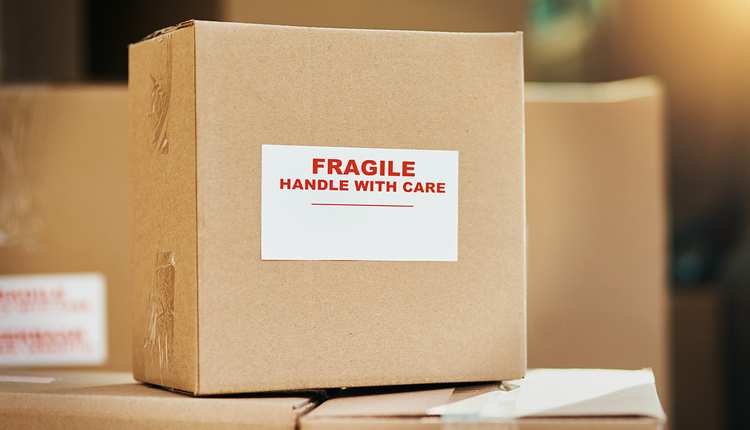Shipping medical devices safely and cost-efficiently is notoriously challenging – and doing so in an eco-friendly manner may seem like a sizeable feat.
Luckily, there is good news. Green shipping practices are more accessible than ever before. A growing push to go green comes with a continually growing pool of insights into green shipping practices. There are many small ways in which harmful environmental waste can be cut down, starting with your own business practices.
For decades, I’ve worked in the shipping industry making custom shipping and transport cases for clients in the medical device manufacturing industry. Working with the market as a whole has allowed me to see the bigger picture. I’ve compiled five effective practices that we, and our medical device customers, have used to reduce the environmental impact of shipping-related waste. These small steps can make a big difference. And even if you're not in the business of shipping medical devices, many of these best practices could still apply to you.
LIMIT WASTE WITH THE HELP OF TRANSPORTATION MANAGEMENT SYSTEMS
If you’re not already using a transportation management system (TMS), you’re missing out. By automating green practices, TMS software promotes long-term sustainability. TMS software offers a number of useful features – a number that is only growing as technology continually evolves. These user-friendly platforms allow you to track shipping and transport in real time as well as monitor for factors like costs per mile or pound. Quickly analyzing these factors will allow you to rapidly shift to more cost-effective and waste-prohibitive practices.
Among TMS software’s other useful and environmentally conscious features are analysis of transportation mode and provider efficiency data, shipping load and route optimization options, and cost control generation.
GO LEAN – WITH LEAN MANUFACTURING
The concept of lean manufacturing (or lean production) lends itself well to eco-friendly practices. It’s a great foundation for a successful business, as well as a great starting point for minimizing environmental waste. The gist of it: Do more with less.
By making apparent what adds value to a company, and advocating for the reduction of waste – i.e., everything else – lean manufacturing offers a method of minimizing waste that doesn’t sacrifice productivity. By adapting the concept of lean manufacturing, you’ll find that waste can be identified and minimized in every aspect of your business. By conserving resources, you’ll save more money and minimize your environmental footprint in the process.
RECYCLE, REUSE AND SAVE WITH REUSABLE SHIPMENT CASES
When you produce less, you produce less waste. It’s that simple. Not only does choosing reusable shipping materials cut down on production-related waste, but it also offers a number of great benefits for your business. When you opt for well-made, reusable cases, you’ll also reduce shipment-related costs for your business in the long term and minimize shipping-related product damage. What’s good for the environment can be good for business too.
REDUCE WASTE FURTHER WITH CUSTOM SHIPPING MATERIALS
Take your decision to use reusable shipment materials one step further by going custom. Yes, disclaimer: I am in the business of manufacturing reusable, custom cases. I’m proud to be a part of a company that helps minimize waste by creating shipment cases specially tailored to our clients needs. But, even if I wasn’t, I would still advocate for reusable custom shipment cases in the medical sector.
Ask anyone involved: Medical equipment is notoriously hard to ship safely and cost-efficiently. Catered to the dimensions of each piece of equipment, custom, reusable cases are especially advantageous for shipping medical devices, as they cut down costs in the long term and allow for less content shifting while in transit.
START YOUR GREEN PRACTICES AT YOUR HOME BASE
An easy way to start thinking green is to start with your own habits and that of your company. Choose to go green and make your green business practices clear to employees. Explain to employees how choosing one shipping company or a certain material over another impacts both the company’s bottom line and the future of our environment. Encourage your employees to get into the habit of reducing waste as well – starting with the small decisions they make every day. Give your company an active way to go “green” by incorporating recycle bins into your workplace and incentivizing waste reduction. Reward employees who opt for “green” practices in manners that make sense in your specific workspace.
By shifting the mindset of your company and its practices, you’ll not only begin doing good on a small scale, but also help improve the image of your brand. Data proves that consumers love companies that do good. So, it’s beneficial for other businesses to align with fellow green companies. Do good, and other companies and consumers will take notice.
Entrepreneur and drone enthusiast Tim Jennings has been in the manufacturing business in San Dimas, California for over 20 years. He’s president of Custom Case Group — creator of DroneHangar cases and manufacturer of custom shipping cases for industries ranging from bio-tech to the US military.










